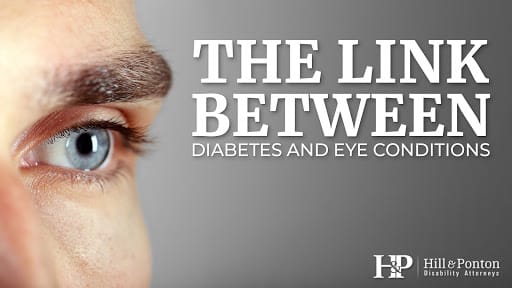Obsessive-Compulsive Disorder (OCD) can severely impact veterans’ daily lives, making it challenging to maintain relationships, focus on work, and engage in social activities. Veterans who develop or have their OCD aggravated by military service may qualify for disability compensation from VA. This article explains how OCD is rated by VA, how to establish a service connection, and what veterans need to know about winning their claim.
How VA Rates OCD
OCD falls under Diagnostic Code 9404, which is part of the broader category of anxiety and stressor-related disorders. VA rates OCD based on the severity of the veteran’s symptoms and how much these symptoms interfere with daily life and work.
Ratings for OCD and other mental health disorders range from 0% to 100%, depending on the level of social and occupational impairment. Here is the General Rating Formula for Mental Disorders (including OCD), as set forth in § 4.130 of VA’s Schedule of Ratings:
- 100%: Total occupational and social impairment, due to such symptoms as: gross impairment in thought processes or communication; persistent delusions or hallucinations; grossly inappropriate behavior; persistent danger of hurting self or others; intermittent inability to perform activities of daily living (including maintenance of minimal personal hygiene); disorientation to time or place; memory loss for names of close relatives, own occupation, or own name.
- 70%: Occupational and social impairment, with deficiencies in most areas, such as work, school, family relations, judgment, thinking, or mood, due to such symptoms as: suicidal ideation; obsessional rituals which interfere with routine activities; speech intermittently illogical, obscure, or irrelevant; near-continuous panic or depression affecting the ability to function independently, appropriately, and effectively; impaired impulse control (such as unprovoked irritability with periods of violence); spatial disorientation; neglect of personal appearance and hygiene; difficulty in adapting to stressful circumstances (including work or a work-like setting); inability to establish and maintain effective relationships.
- 50%: Occupational and social impairment with reduced reliability and productivity due to such symptoms as: flattened affect; circumstantial, circumlocutory, or stereotyped speech; panic attacks more than once a week; difficulty in understanding complex commands; impairment of short- and long-term memory (e.g., retention of only highly learned material, forgetting to complete tasks); impaired judgment; impaired abstract thinking; disturbances of motivation and mood; difficulty in establishing and maintaining effective work and social relationships.
- 30%: Occupational and social impairment with occasional decrease in work efficiency and intermittent periods of inability to perform occupational tasks (although generally functioning satisfactorily, with routine behavior, self-care, and conversation normal), due to such symptoms as: depressed mood, anxiety, suspiciousness, panic attacks (weekly or less often), chronic sleep impairment, mild memory loss (such as forgetting names, directions, recent events).
- 10%: Occupational and social impairment due to mild or transient symptoms which decrease work efficiency and ability to perform occupational tasks only during periods of significant stress, or symptoms controlled by continuous medication.
- 0%: A mental condition has been formally diagnosed, but symptoms are not severe enough either to interfere with occupational and social functioning or to require continuous medication.
Can PTSD Lead to OCD?
Veterans, due to their higher likelihood of exposure to traumatic events, are at increased risk for both disorders – research indicates that up to 41% of veterans with posttraumatic stress disorder also develop OCD.
This overlap is so prevalent that the term “trauma-related OCD” has been introduced to describe OCD cases that arise following a PTSD diagnosis. The persistent stress and intrusive thoughts associated with PTSD can manifest into compulsive behaviors, leading to a complex mental health condition.
Getting VA Disability for OCD
To receive an OCD VA rating, veterans need to prove the following:
- Current Diagnosis of OCD: A formal diagnosis must be present in the veteran’s medical records.
- In-Service Event or Aggravation: There must be evidence of an in-service event, injury, or illness that either caused or aggravated the OCD.
- Nexus (Connection) Between the Diagnosis and Service: A medical nexus must establish the link between the OCD and the veteran’s military service.
Veterans can submit medical evidence, lay statements, and buddy statements to help prove the severity of their condition and its impact on their daily life.
How to Establish Service Connection
OCD is not a presumptive condition, meaning veterans need to directly prove the connection between their service and their diagnosis. To establish a service connection for non-presumptive conditions like OCD, veterans should provide:
- Medical records documenting the diagnosis and treatment for OCD.
- Statements from family members or colleagues showing how OCD impacts daily functioning.
- A nexus letter from a healthcare provider connecting the OCD to military service.
Winning a VA Disability Claim for OCD: Case Example
In this case, a veteran who served in the U.S. Marine Corps from 1999 to 2003 filed a claim for increased disability benefits due to posttraumatic stress disorder (PTSD) with obsessive-compulsive disorder (OCD), panic disorder without agoraphobia, and a cognitive disorder.
The veteran was initially awarded a 50% disability rating, but believed that their symptoms, especially OCD-related compulsions, were more severe and warranted a higher rating. The veteran appealed the decision, and the Board of Veterans’ Appeals reviewed the case.
The Board ultimately decided to increase the veteran’s rating to 70%, recognizing the severity of the veteran’s OCD and other psychiatric symptoms. These symptoms significantly impacted the veteran’s ability to function at work, in school, and in personal relationships, justifying the higher disability rating.
How OCD Led to an Increased Rating:
- Significant OCD Symptoms Interfering with Daily Life – The veteran’s OCD symptoms, including obsessive rituals surrounding order and symmetry, and counting rituals in multiples of three, were documented as significantly interfering with routine activities. These rituals, along with panic attacks and anxiety, contributed to the Board’s decision to assign a higher rating due to their impact on daily functioning.
- Documented Impairment in Social and Occupational Functioning – The veteran’s OCD and other mental health conditions caused deficiencies in most areas of life, including work and school performance, relationships, and general mood. The veteran’s inability to adapt to stressful circumstances, such as completing assignments or maintaining employment, was well-documented, further supporting the need for a higher rating.
- Consistent Medical Evidence – The veteran underwent multiple VA psychological evaluations, all of which consistently reported OCD-related rituals, intrusive thoughts, and significant anxiety. These evaluations provided objective medical evidence that demonstrated the chronic and severe nature of the veteran’s symptoms, which were key to securing the increased rating.
The veteran’s persistence in appealing their initial rating and providing comprehensive evidence of their OCD and related mental health conditions ultimately resulted in a favorable outcome and a higher disability rating.
How to Increase the VA Rating for OCD
PTSD isn’t the only mood or anxiety disorder associated with OCD. OCD also occurs alongside other mental health issues like:
- Depression
- Generalized Anxiety Disorder
- Panic Disorder
- Attention-deficit hyperactivity disorder (ADHD)
- Eating disorders
Veterans who feel their OCD rating is too low can file for an increased rating by submitting new medical evidence or documenting a worsening of symptoms.
For example, if OCD symptoms have escalated to the point of causing total occupational and social impairment, veterans may be eligible for a 100% rating. They can also consider a Compensation and Pension (C&P) exam to re-evaluate their symptoms.
Total Disability Individual Unemployability (TDIU) for OCD
Veterans whose OCD prevents them from maintaining substantial gainful employment may be eligible for Total Disability Individual Unemployability (TDIU). Veterans can qualify for schedular TDIU if they have:
- One service-connected disability rated at 60% or higher, or
- Two or more service-connected disabilities, with one rated at 40% or more and a combined rating of 70% or higher.
TDIU ensures that veterans receive 100% compensation, even if their combined rating doesn’t meet 100%.
Has VA Denied or Underrated You?
If VA has denied your OCD claim or rated you lower than expected, you have options. You can:
- File for a Higher-Level Review
- Submit a Supplemental Claim with new evidence
- Appeal the decision at the Board of Veterans Appeals
Working with an experienced attorney can help you navigate the appeals process and increase your chances of securing the benefits you deserve. If you feel you have been unfairly rated, contact us for a free case evaluation today.




